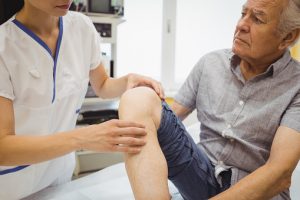
Rheumatoid arthritis is a type of arthritis that is an autoimmune disease, meaning the body’s own immune system wrongfully attacks itself, leading to joint pain, swelling, and stiffness.
Arthritis in general is a very debilitating disease and unfortunately quite common. The scary part is that many of us don’t think of arthritis as being life-threatening, but it can be.
Septic arthritis can be deadly
Another type of arthritis is septic arthritis, which occurs in the knees and hips. This type of arthritis is a result of a bacterial infection which affects the joints. Septic arthritis may also be referred to as bacterial arthritis or infectious arthritis. Having another type of arthritis like rheumatoid arthritis can increase your risk of developing septic arthritis. Furthermore, using immune-suppressing drugs or using injections can also increase the risk of septic arthritis.
The bacteria responsible for septic arthritis is commonly staphylococcus aureus and streptococcus pyogenes bacteria, which are life-threatening. When these bacteria live on the skin, nose, or mouth, they are harmless. However, if they enter the blood, they can lead to sepsis, pneumonia, or toxic shock syndrome. The deadly toxins invade the body and can lead to organ failure.
If not caught early enough, it can be a fatal condition. So, if a doctor suspects that a person’s pain is a result of septic arthritis, they will call for a blood test immediately and then take the appropriate measures to treat the patient.
Treatment for septic arthritis typically involves the use of antibiotics or the fluid being drained from the joint.
But how can you tell if you are just experiencing typical arthritic pain or septic arthritis? Well, the pain experienced in septic arthritis causes extreme discomfort and your ability to use the affected joint becomes greatly decreased. If your arthritis pain becomes sudden and intense, you should see your doctor right away.
Risk factors for septic arthritis include having existing joint problems, taking medications for rheumatoid arthritis, skin fragility, weak immune system, and joint trauma.
To avoid complications, always seek out immediate medical attention if you experience changes in your arthritis symptoms.